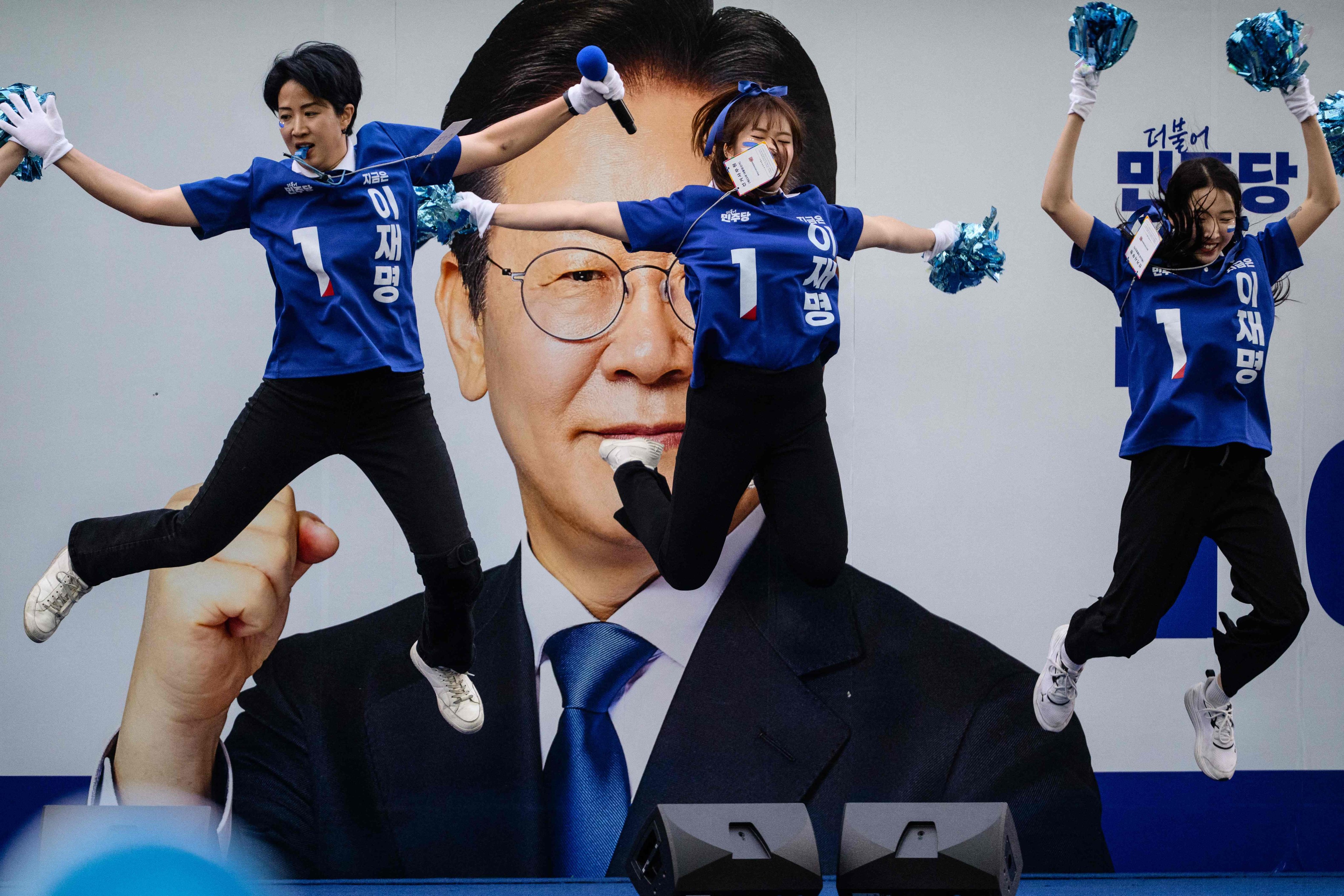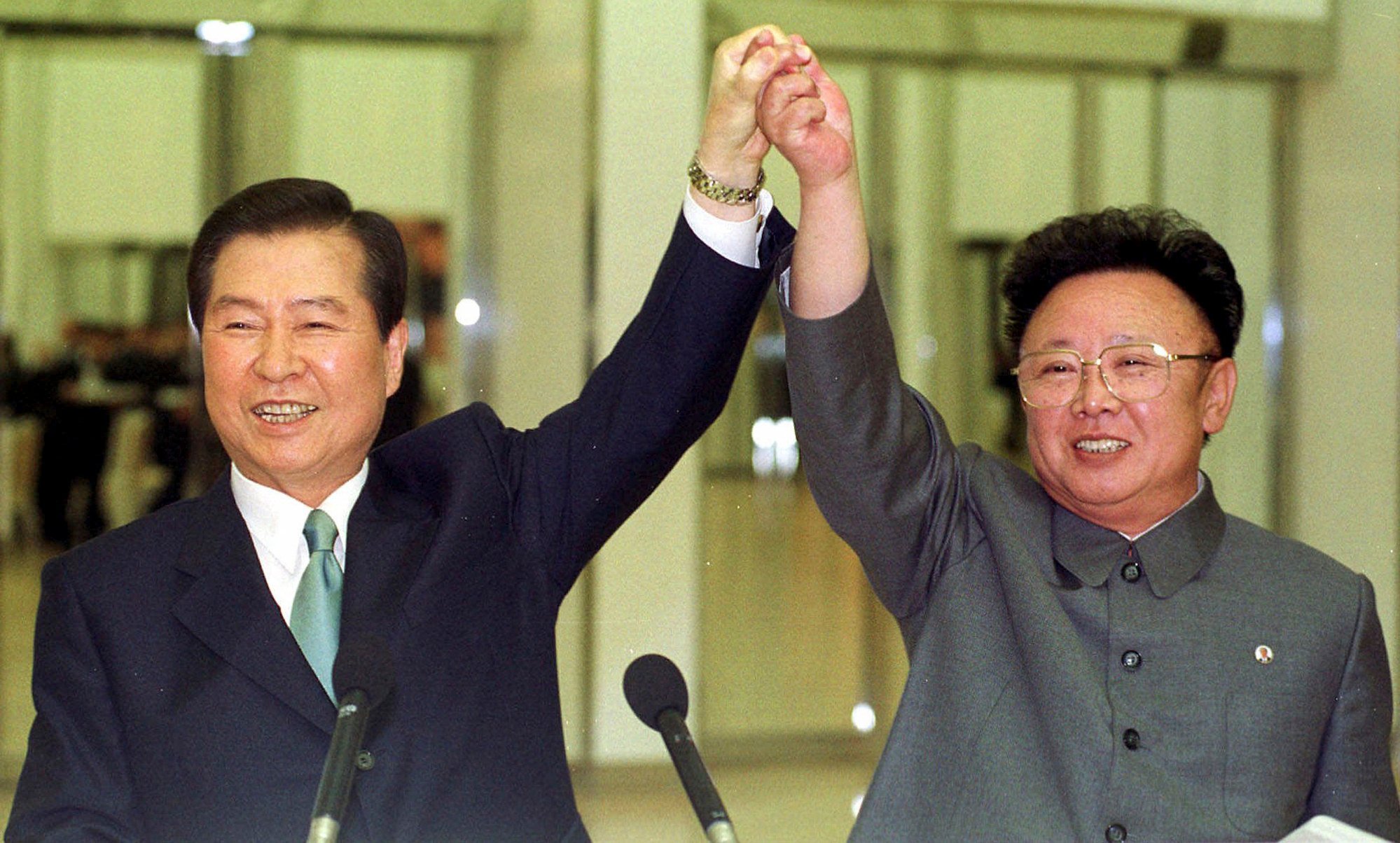South Korea’s president faces tough balancing act between allies, adversaries
Lee Jae-myung has to deal with a North Korea emboldened by strengthened ties with Russia and must consider the stances of the US, Japan and China

Around six months after president Yoon Suk-yeol’s ousting, Liberal Party candidate Lee Jae-myung was elected as South Korea’s new president following a snap election on June 3. Lee’s victory marks a significant political shift, not just in domestic governance, but also in how South Korea may seek to navigate its ever-worsening relations with North Korea.
In his inaugural address at the National Assembly, Lee stated his intention to deter military provocations from the North and also “open a communication channel with North Korea and establish peace on the Korean peninsula”. However, initiating dialogue and establishing peace are easier said than done.
North Korea’s rejection of diplomatic overtures from Seoul, its declaration of South Korea as a “principal enemy”, confirmation of a constitutional amendment to declare South Korea a “hostile” state and deepening of military ties with Russia all indicate a complete breakdown in relations. As he assumes office amid grave uncertainties, Lee has to contend with a hardened Pyongyang, which is no longer interested in cooperation with Seoul.
Over the past few years, North Korea has upheld an increasingly assertive military posture, bolstered its nuclear capabilities and steadily developed weapons systems, such as intercontinental ballistic missiles, submarine-launched systems and short-range missiles to reinforce its narrative of deterrence through dominance.
North Korea’s strategic realignment has further exacerbated regional tensions. Pyongyang’s military and strategic ties with Russia have grown significantly since the outbreak of the Ukraine war, with reports of arms transfers, the deployment of North Korean troops to Russia and visits by high-ranking officials.
The Treaty on the Comprehensive Strategic Partnership, signed between the two states and containing a mutual defence clause, has further heightened South Korea’s anxieties. Pyongyang’s growing partnership with Moscow has brought North Korea closer to the core of a resurgent anti-Western axis, shrinking the already limited scope for engagement.
For Lee, the challenge is not simply to initiate talks but to sustain them in an environment which is not conducive to such overtures. It is within this constrained and volatile situation that Lee must define his North Korea policy.
In his early public statements, Lee has maintained his stance of seeking a dual path of deterrence and dialogue in dealing with Pyongyang. He has emphasised the alliance with the United States and strengthening trilateral cooperation with Washington and Tokyo while approaching relations with neighbouring countries through the lens of “practicality and national interest”, suggesting a more pragmatic approach to foreign policy.
However, Lee has also recognised the importance of establishing peace on the Korean peninsula, saying that the “best security is peace that eliminates the need for war”.
Lee’s initial appointments to key security positions also offer a window into his vision for a North Korea policy. He has nominated Lee Jong-seok, former minister of unification and chairman of the standing committee of the National Security Council under the Roh Moo-hyun administration, as director of the National Intelligence Service. Lee Jong-seok was an architect of the “sunshine policy” of promoting reconciliation and cooperation between the two Koreas, rather than a confrontational approach, and is in favour of seeking ways to bridge the gap between North Korea and the US.
President Lee has also picked Wi Sung-lac, a former diplomat who has worked extensively on North Korean and Russian affairs, as national security adviser. Wi advocates what has been called a “practical yet principled foreign policy” which upholds the national interest by maintaining stable ties with major regional actors.
By appointing officials with a wealth of experience in inter-Korean affairs, Lee has made clear his commitment to engaging with Pyongyang and exploring channels of peace.

However, the effectiveness of such an approach depends on North Korea’s receptiveness to engagement and the evolving roles of major powers in the region. Pyongyang has recalibrated its strategic posture, viewing relations with Seoul purely through a security lens. This raises fundamental questions about whether North Korea sees any value in dialogue initiated through a Seoul-led process.
Furthermore, the posture of major and regional powers will shape the space within which Seoul operates. Lee’s dual-track approach is expected to be embraced in Washington. US President Donald Trump’s willingness to engage with North Korea provides common ground for the two administrations.
However, while Lee has stressed the need to strengthen trilateral cooperation with the US and Japan, the limits of this are bound to be tested. Tokyo would be sceptical of any policy shift which appears to reward Pyongyang’s actions and Washington is bound to keep a close eye to ensure Lee’s engagement efforts do not dilute cooperation within the alliance. Hence, a major obstacle to Lee’s North Korea policy lies in aligning his engagement efforts with the strategic expectations of allies.
Lee’s calculated approach and softer stance towards Pyongyang serve China’s interests in maintaining stability on the Korean peninsula. While Beijing has underscored deeper cooperation with Seoul, it is unlikely that China would actively facilitate dialogue between the two Koreas unless it serves its broader rivalry with Washington.
Meanwhile, Moscow has little incentive to support the prospects for inter-Korean dialogue. Being deeply aligned with North Korea, Russia would refrain from supporting any initiative that may diminish its influence on Pyongyang.
A feasible path for Seoul lies in pursuing restrained and calculated measures rather than high-stakes diplomacy to force breakthroughs. In the current scenario, appeasing Pyongyang is both unlikely to yield results and something Seoul can no longer afford. Lee faces the dual problem of having to balance the interests of allies while approaching a neighbour that has long turned its back.